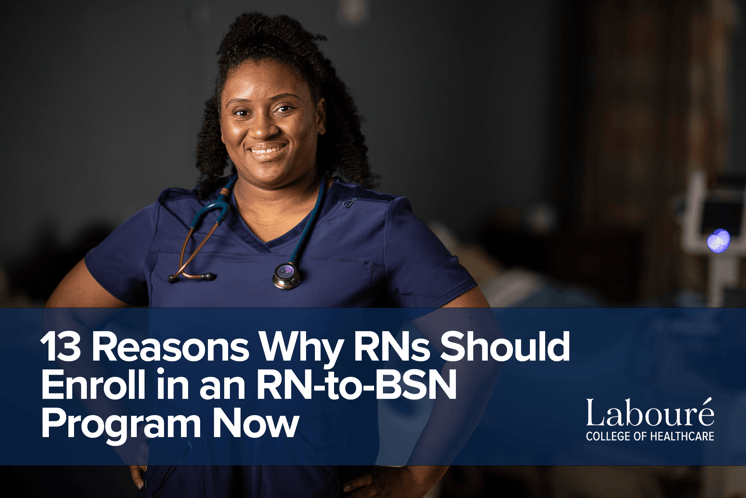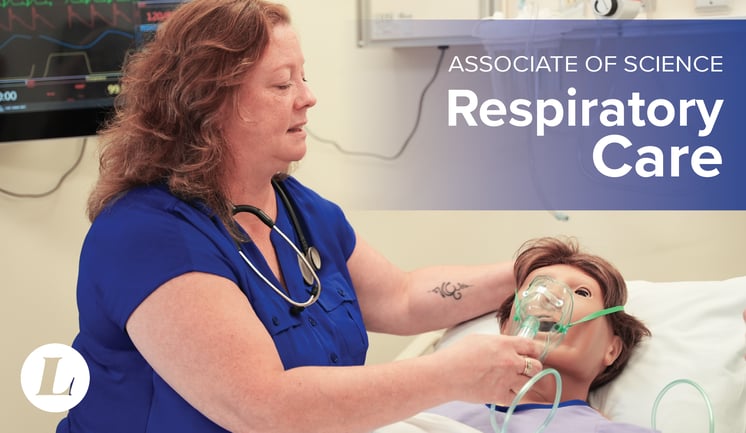Benefits of the RN-to-BSN Program
Are you an RN looking to advance your career? Here are 13 benefits of earning a Bachelor of Science in Nursing (BSN) degree through an RN-to-BSN program.
Are you interested in a healthcare career? Not sure how to get started?
Do you have some college credits? Would you like to transfer your credits to a program that can result in a meaningful career in healthcare?
Maybe you are working in healthcare at the certification level but want to expand your career options?
Enrolling in a health science program is a great way to get started in a career in healthcare or take your healthcare career to the next level.
An associate of science degree provides the foundational knowledge needed to work in many healthcare settings, including hospitals, specialty clinics, and doctor’s offices. Some of the topics you will explore include:
A health science degree can help you qualify for entry-level healthcare jobs, such as clinical assistant and claims reviewer.
Keep reading for the top 8 reasons to earn an associate of science degree and how Labouré College of Healthcare's Associate of Science in Health Science program can help you reach your professional goals.
Top 8 reasons to enroll in a health science degree program:
An associate of science degree can open doors to various entry-level jobs within healthcare, such as:
Starting your career with a health science degree allows you to create a career path that suits your situation and reach your career goals.
A health science degree typically takes two years if you have no healthcare background or education. You can often choose between in-person, remote, or hybrid programs.
Labouré’s health science program offers specialty tracks that can be completed 100% online. Labouré also offers tracks that combine on-site skills training with remote learning, such as the phlebotomy program that qualifies graduates to take the national certification exam.
You may be able to complete your health science degree in less than two years if you already have transferable college credits or a specialty certification. An admissions counselor at Labouré can review this option with you.
If you want to further your education after graduating from a health science program, consider a program that allows you to continue working while pursuing a bachelor's degree or certification. Many programs offer part-time or hybrid programs that accommodate the working student, such as Labouré’s Bachelor of Science in Healthcare Administration program.
A two-year college degree is more affordable than a four-year degree for two reasons.
The first reason is that the more time you spend in school, the more you pay for your education.
The second reason is that compared to a two-year full-time program, a four-year full-time college program delays your entry into the workforce by two years. This means you will spend four years of your potential income-earning years not earning income instead of just two years.
Let’s look at an investment scenario:
If you delay your entry into the workforce, you delay the opportunity to save and invest for your future.
Some two-year health science degree programs offer tracks that provide the education needed to pursue specialty certifications.
For example, Labouré’s health science degree program offers the following specialty tracks that lead to certifications:
A note about credentials:
Credentials, including college degrees and specialty certifications, are important in healthcare. In 2022, According to the U.S. Bureau of Labor Statistics, almost 75% of allied healthcare workers were required by their employer to be credentialed. Having credentials, such as an associate of science degree, shows the public and your employer that you have acquired a depth of knowledge and are committed to providing the best and most up-to-date care to your patients, whether you are a phlebotomist, an EKG tech, or a medical administrative assistant.
An associate of science degree can be a stepping stone to more education. A student may use their associate in health science degree to go back to school for a bachelor’s degree in healthcare management or nursing.
Labouré’s health science program offers a Pre-Health Professions pathway for students who may not have the prerequisites for Labouré’s associate degree programs in Respiratory Care or Radiation Therapy.
The Pre-Health Professions Pathway helps students gain the knowledge and skills they need to take the Test of Academic Essential Skills (TEAS) exam. Upon passing the exam, students can request to transfer into the respiratory care or radiation therapy associate degree program.
The Labouré health science program’s Pre-Health Professions Pathway helps students build a solid foundation before furthering their education.
Healthcare delivery is centered around the patient, but that does not mean you have to provide direct care to patients to have a meaningful career.
Labouré offers specialty tracks in:
Healthcare is one of the fastest-growing job fields in the U.S. The Bureau of Labor Statistics predicts that healthcare will experience 1.8 million job openings through 2032.
Even though you can work in healthcare without a degree, an associate of science degree can increase your earning potential. Many healthcare fields have certifications or other credentialing paths that can open doors to advanced job opportunities.
An associate of science degree can help you expand your knowledge, learn about other career opportunities, and bring a renewed perspective to your current position. You can also leverage a health science degree to take your career to the next level.
Employers look for job applicants who have what it takes to not only fill a position but to grow and move into other positions as they gain experience.
Maybe you’ve earned a certificate in an allied or support field, showing that you are dedicated to providing the best possible patient care. Or maybe you work in a non-clinical role but want to learn more about how healthcare works so that you can bring even more value to your job.
Adding a degree in health science to your resume can make it easier to move into new roles, take on more responsibilities, and potentially increase your earnings.
Labouré’s health science program offers multiple specialty tracks that can help you build a rewarding career with growth opportunities.
Learn more about Labouré’s two-year Associate of Science in Health Science degree program and how Labouré College of Healthcare can help you enter the workforce and reach your career goals faster.

Are you an RN looking to advance your career? Here are 13 benefits of earning a Bachelor of Science in Nursing (BSN) degree through an RN-to-BSN program.

Labouré launches Bachelor's in Healthcare Administration, a flexible, fully online BS completion program. $1000 scholarships available, restrictions apply.

Labouré is excited to announce the launch of its Associate of Science in Respiratory Care! Students began their clinical classes in Fall 2023.
© 2024 Labouré College of Healthcare. All Rights Reserved.
Comments